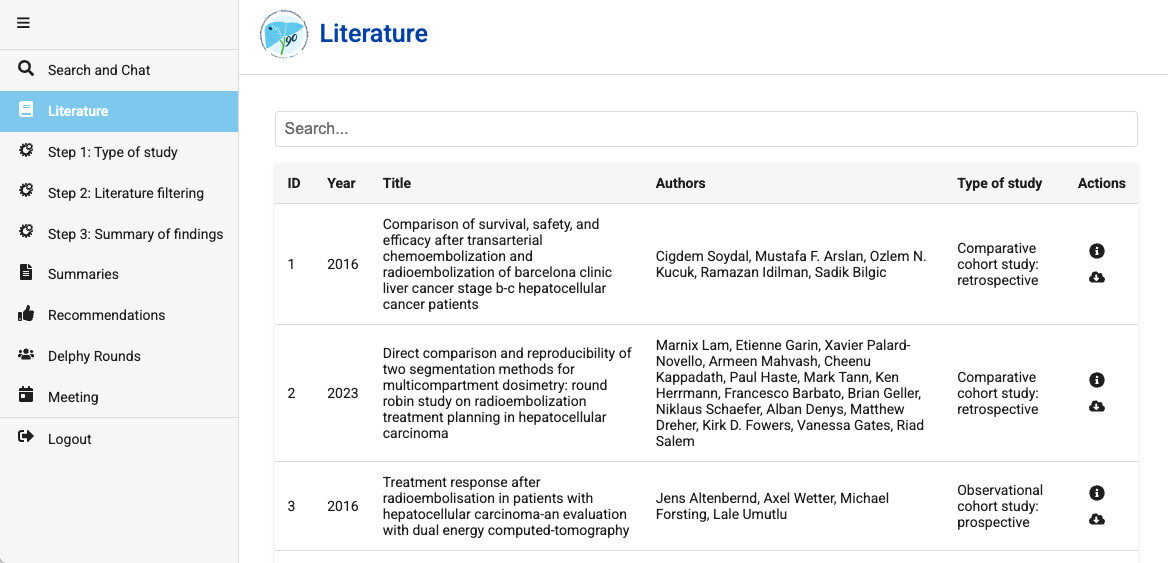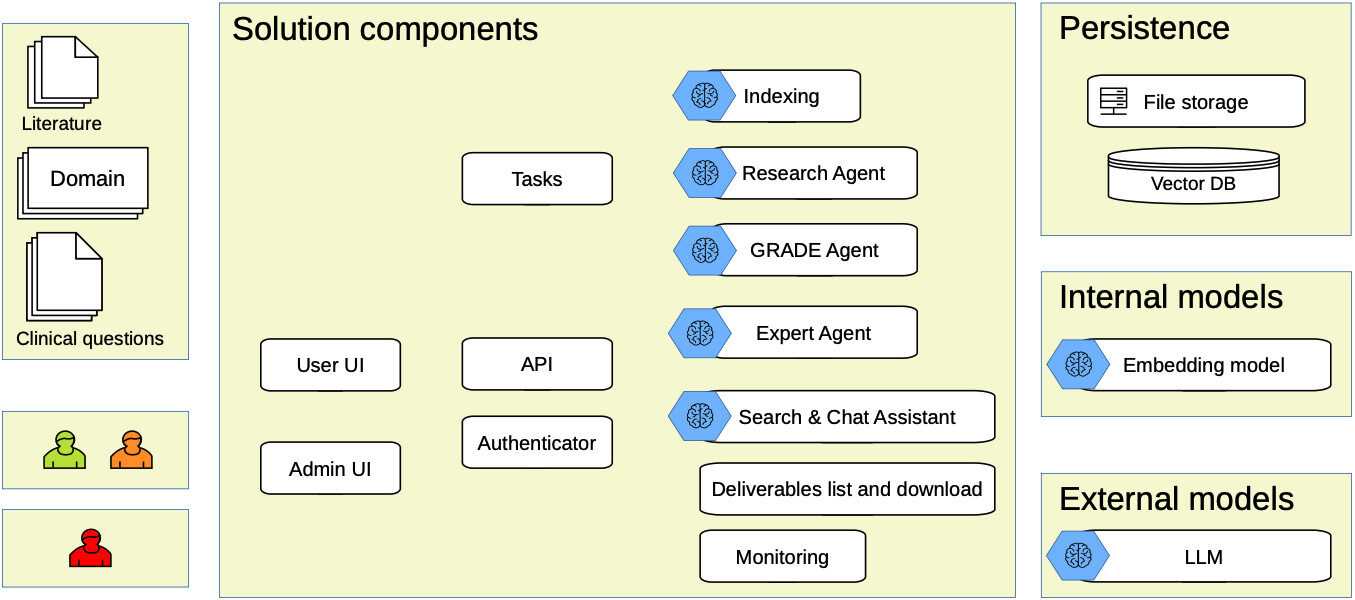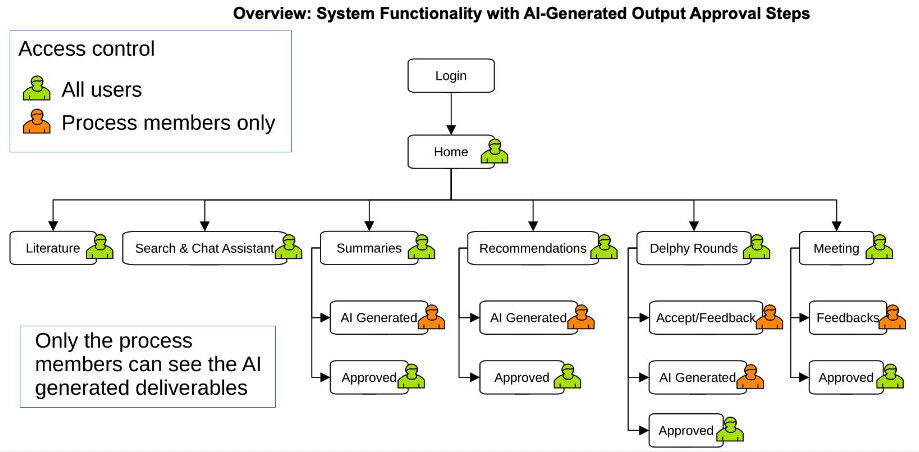Ex Machina is working on a project that will radically transform clinical consensus conferences through an approach that puts humans at the center and AI as support, ensuring scientific rigor and reliability.
In the landscape of modern medicine, consensus conferences represent a fundamental pillar for the development of clinical guidelines based on data and studies. These types of conferences are structured scientific processes that bring together international experts to develop evidence-based clinical recommendations through systematic review of scientific literature and consensus building methodologies such as Delphi rounds. In the case of radioembolization for hepatocellular carcinoma, the conference aims to establish guidelines shared by the international scientific community to optimize the use of this innovative therapy in clinical practice. However, the traditional process requires long timeframes, considerable resources, and carries the risk of interpretive bias. It is precisely from this challenge that AY90 was born, the project developed by Ex Machina within the proprietary COSMO 42 framework.
The Challenge: Accelerating Without Compromising
The First International Consensus Conference on Radioembolization for Hepatocellular Carcinoma represents an ideal case study. With scientific literature in continuous expansion, the traditional process risked becoming a bottleneck for the advancement of clinical knowledge.
The central question was: how to significantly accelerate the process while maintaining the scientific rigor that characterizes these important initiatives?
Ex Machina’s response is structured around three fundamental principles that redefine the relationship between artificial intelligence and human expertise.
Source-Cited AI eliminates the risk of artificial intelligence “hallucinations”: every system output is anchored exclusively to the defined knowledge base, with verifiable references that guarantee complete traceability of every piece of information.
Expert-in-the-Loop places humans at the center of the process: AI generates suggestions and proposals, but only deliverables approved by human experts advance in the workflow. This is not about replacing clinical expertise, but amplifying it through intelligent tools.
AI Monitoring & Validation ensures continuous improvement: every interaction between AI and experts is tracked to validate system performance and demonstrate the beneficial impact on the entire decision-making process.
The Implementation: An Intelligent Ecosystem
The AY90 system presents itself through a structured user interface that accompanies experts through every phase of the process. The Search and Chat section provides conversational access to the entire knowledge base, while the Literature area is structured in three progressive steps: study type classification, literature filtering, and results synthesis.
The Summaries and Recommendations sections respectively manage the creation of evidence-based syntheses and the formulation of clinical recommendations, supported by Delphi Rounds for the consensus building process and the Meeting section for managing live sessions.
The underlying architecture integrates specialized agents for each phase: the GRADE Agent evaluates publication quality, the Research Agent assists in evidence review, while the Expert Agent supports recommendation formulation. All of this runs on a cloud infrastructure designed to support numerous concurrent users during plenary sessions.
The results are extremely positive: the system automatically processes hundreds of scientific publications applying standardized grading criteria, generates evidence-based summaries while maintaining source traceability, supports Delphi rounds with automatic feedback processing, and facilitates consensus building during live sessions.
All of this while maintaining rigorous quality control where every intermediate step requires explicit expert approval before proceeding.
The implementation includes a granular access control system that distinguishes between general users and process members, ensuring that sensitive information and work-in-progress remain protected throughout the entire recommendation development cycle.
A More Effective and Faster Model
With the First Global Consensus Conference on Radioembolization for Hepatocellular Carcinoma scheduled for December 12-13, 2025, in Rome, AY90 is preparing to become a reference case study for AI application in critical clinical processes. AY90 demonstrates that the future of precision medicine lies in the synergistic collaboration between human expertise and artificial intelligence. Accelerating clinical decision-making processes while raising quality standards is no longer a utopia, but a concrete reality that paves the way toward more effective, faster, and above all, more human medicine.
Ex Machina, with twenty years of experience in IT and dedicated research in the AI Lab, has created with Cosmo 42 not just a technological solution, but a new model that integrates artificial intelligence and high-impact decisions, ensuring maximum protection of sensitive data and intellectual property, perfect integration with existing IT infrastructures, and development of intelligent assistants for scientific research with high security standards.
For more information: exmachina.ch/cosmo42



